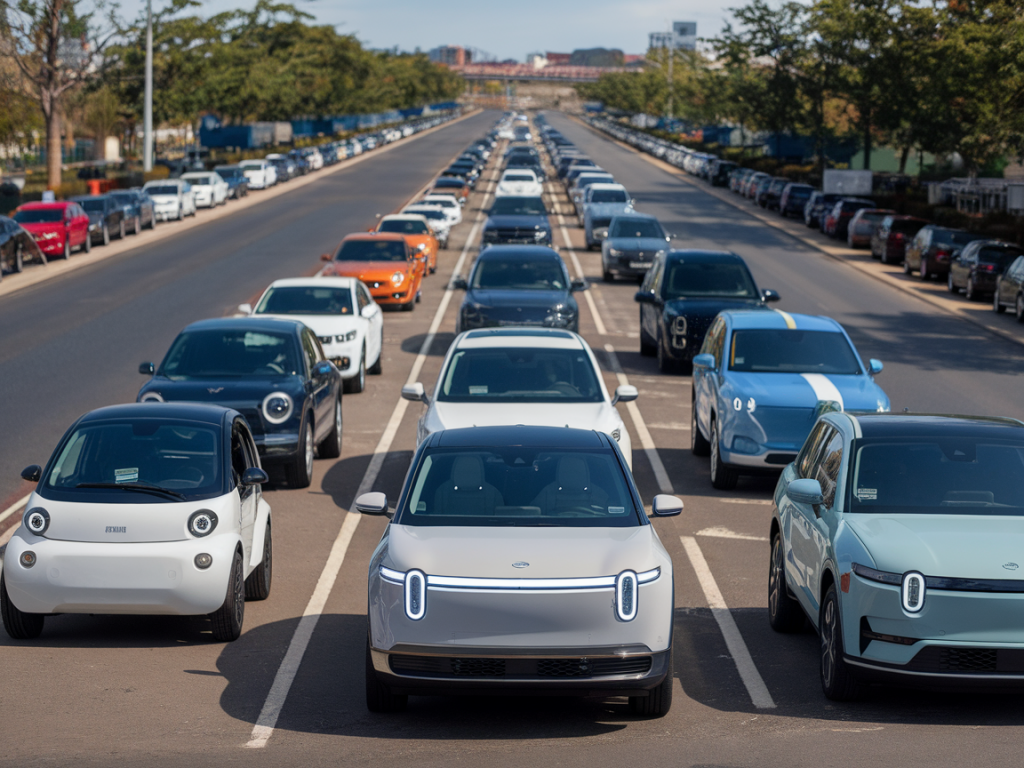
Choosing the right electric vehicle (EV) can be both exciting and overwhelming, especially with all the options currently available on the market. As someone who has closely followed the rapid evolution of clean transportation, I know how important it is to find a car that not only fits your lifestyle but also aligns with your budget. In this article, I’ll walk you through some key considerations to make your decision easier, whether you’re an EV enthusiast or taking your first steps toward greener driving.
Understand Your Driving Habits
The first step in choosing the most efficient electric vehicle is understanding your driving needs. Are you commuting long distances daily, or do you primarily use your car for short errands around town? If your typical drive involves fewer than 50 miles a day, a smaller EV with a modest range could fit your needs perfectly, saving you money upfront. On the other hand, if you frequently take long road trips or drive in rural areas with limited charging infrastructure, a car with a larger battery range will offer the flexibility you need.
For instance, models like the Renault Zoe provide great efficiency for urban use, while cars such as the Tesla Model 3 Long Range or the Hyundai Kona Electric are excellent for longer distances. Understanding your daily mileage and charging access is crucial before making a choice.
Consider Your Budget
Electric vehicles vary widely in price, so it’s essential to think about your budget early on. Remember that the cost of an EV involves more than just the purchase price. Factors like potential government incentives, lower running costs, and reduced maintenance expenses also come into play.
In many countries, government subsidies or tax credits help offset the initial cost of an EV. For example, in the UK, the Plug-In Car Grant (PICG) has been a popular incentive, though its availability and specifics may vary over time. Check what benefits you may qualify for in your region to make the most of your investment.
Additionally, factor in the savings you’ll see over time. Unlike traditional internal combustion engine vehicles, EVs have significantly lower fuel and maintenance costs due to simpler mechanical systems and the use of electricity over petrol or diesel.
Battery Range and Charging Speed
The next consideration is battery range. Ask yourself how much driving range you realistically require on a single charge. Today’s EVs offer a range between 100 and 400 miles, depending on the model. For perspective, a car like the Nissan Leaf offers a range of around 168 miles, which is ideal for most urban drivers. On the other hand, high-end models like the Tesla Model S can exceed 370 miles on a single charge, catering to users who prioritize long-distance capability.
Charging speed is just as important. For those who travel frequently, having fast-charging capabilities can significantly reduce downtime. Public rapid chargers can top up compatible EVs to 80% in as little as 30 minutes. However, if you mainly charge at home, ensure you have access to a Level 2 charger for efficient overnight charging. Many EV manufacturers, like BMW or Volkswagen, offer incentives for installing home chargers when you purchase a new vehicle.
Evaluate Size and Features
Size and features play a big role in your overall satisfaction with the vehicle. If you live in a city, a compact EV like the Mini Electric or Fiat 500 Electric offers easy maneuverability and parking ease. Families or individuals needing more space can look at models like the Volkswagen ID.4 or Kia EV6, which provide roomy interiors and large boot capacity.
Pay attention to technology features as well. Many EVs now come with advanced driver-assistance systems (ADAS) like adaptive cruise control, lane-keeping assist, and autonomous emergency braking. Some models, like the Tesla lineup, even offer cutting-edge features such as over-the-air software updates or state-of-the-art autopilot technology.
Look Into the Total Life Cycle of the Vehicle
One of the aspects eco-conscious buyers often consider is the overall carbon footprint of their EV. While it’s true that EVs produce zero tailpipe emissions, their environmental impact doesn’t stop there. Look for manufacturers that prioritize sustainability in the production process, such as using recycled materials or renewable energy during manufacturing.
For example, companies like Polestar and Volvo are making strides in improving the life cycle sustainability of their EVs by sharing transparent carbon assessments with consumers and committing to climate-neutral production goals. Being mindful of these factors can further enhance the positive environmental impact of your choice.
Test Drives and Reviews Matter
No matter how much research you do, nothing compares to sitting behind the wheel of the car itself. Take test drives of the EVs on your shortlist to get a better feel for driving dynamics, comfort, and features. Some EVs may offer a quieter, smoother ride, while others might prioritize sporty performance.
Additionally, don’t underestimate the value of reading reviews from current owners. Joining online EV communities or forums can provide honest feedback on real-world battery ranges, maintenance tips, and customer service experiences.
Future-Proof Your Purchase
The EV market is evolving rapidly, which means a model that’s cutting-edge today might feel outdated in a few years. To future-proof your investment, look for EVs with features like over-the-air software updates, which enhance functionality and add new features over time.
Connectivity is also key. Models that integrate seamlessly with smart devices or offer advanced infotainment systems are likely to stay competitive for longer. Brands like Tesla, Kia, and Hyundai often excel in this area, providing a forward-thinking experience that adapts to changing user needs.

